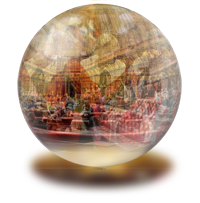

A Future Alternative to the House of Lords
Which is Not an Elected Second Chamber
Every now and again, something pops through my news stream suggesting that the House of Lords is undemocratic, and that we should be looking to elect it. This is a very bad, and dangerous idea.
The problem with an elected House of Lords is it gives too much power to those who provde the information we use to vote, i.e. those who own the newspapers and other media. It's not just that we might be fooled when voting, but that politicians will then do "political favours" for media owners, in the hope that means they'll get favourable coverage.
The question becomes, can we create a more effective second chamber, which doesn't pander to the heriditary peers and entitled of the historic establishment, but which also doesn't put our entire parliamentary system into the hands of the super rich media moguls?
So What Does the House of Lords Do?
The job of the House of Lords is not to create new legislation (although Lords can create Private Members Bills which if supported by an MP may proceed to the House of Commons). It is to scrutinze legislation created by the House of Commons, and ensure it's fit for purpose. As such, what we want in the House of Lords, is not simply a popularity contest as we get for the Commons, but a wide variety of different mindsets who can offer many different meaningful perspectives on how new legislation is going to effect society, and how that legislation can be made to work effectively.
The Solution - Divided Allocation of Representatives:
In this new plan for selecting the House of Lords, groups which represent a suitable subsection of society would be allocated a seat, or seats in the House of Lords to fill.
I envision seats being allocated to Education, the Medical Profession, the Legal Profession, Business Representatives and Trade Union Representatives, Miltary, Religious groups and Moral/Ethical Accociations, Journalists, and the Charity Sector. Maybe some should still go to the historic lords simply because they have a handle on how power works... and maybe not. Who gets how many seats is of course, open to debate.
I'm sure I've missed some important groups (feel free to tell me) which should also be represented, but I trust you get the idea. If smaller groups can nominate their own representatives, based on their own internal politics, then the media moguls who greatly effect the selection of the House of Commons, are far less likely to get the same influence, while it offers an alternative to hereditary peers and the entitled of the historic establishment.
It's an idea - and it's got to be better than the current method where politicians stuff the House of Lords with whoever gives them them or their party the most back handers... or allowing Rupert Murdoch, Lord Rothermere and Richard Desmond to select them via their very biased newspaper coverage... or simply handing that power to Lord Nobbynobs and his mates simply because their ancestors beat up our ancestors a millennium or so ago, which means they now own most of Nobbyshire.